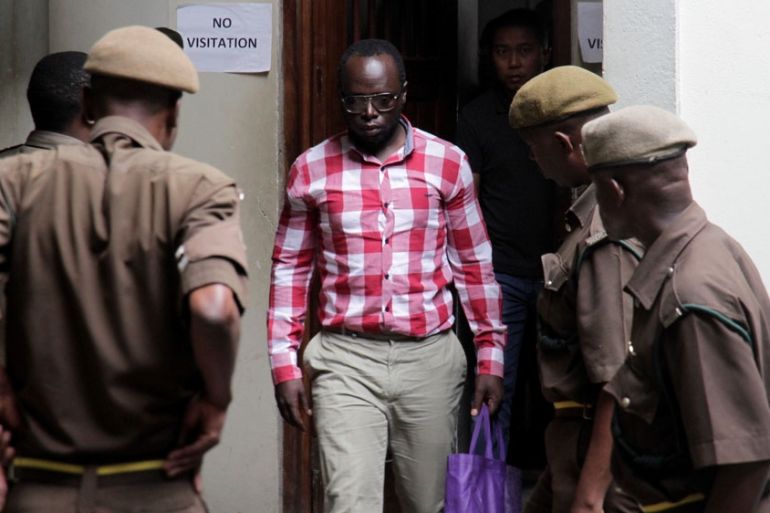Rights groups accuse Tanzania’s Magufuli over rising repression
In new reports, Amnesty International and Human Rights Watch also say censorship is mounting in Tanzania.

Two international rights groups have accused the government of Tanzanian President John Magufuli of increasingly repressing political dissent.
Since Magufuli’s election in 2015, Tanzania has implemented laws that stifle independent journalism and severely restrict the activities of NGOs and opposition parties, Amnesty International and Human Rights Watch (HRW) said in two separate reports released on Monday.
Keep reading
list of 3 itemsHundreds of Burundian refugees return home from Tanzania
Freedom of expression in Tanzania is slowly being eroded
Civil society activism and public discussions on human rights-related issues have also been suppressed, while the authorities’ “regressive” policies have restricted the playing field for those seeking to challenge the ruling party, they added.
“With elections around the corner, people don’t feel that they can comment honestly,” said Jehanne Henry, HRW’s East Africa director, referring to Tanzania’s polls scheduled for next year.
“Human rights activists are restrained from pushing for accountability for disappearances and other human rights abuses,” she told Al Jazeera.
Al Jazeera contacted the Tanzanian government for comment but did not receive a response by the time of publication.
Media censorship, arrests
The rights groups interviewed dozens of government officials, lawyers and NGO representatives, as well as academics, journalists, diplomats and religious leaders.
They said the government has stepped up censorship since 2015 by banning or suspending five newspapers for content deemed critical. Among them was Tanzania’s major English-language paper, The Citizen.
The authorities have also used the 2015 Cybercrimes Act to prosecute journalists and activists for social media posts. In 2017, a court in Dar Es Salaam used this law to convict human rights activist Bob Chacha Wangwe for “publication of false information”. His conviction over a Facebook post in which he questioned the fairness of the 2015 election in Zanzibar was later overturned by the High Court.
Speaking to Al Jazeera, Wangwe said there was a “shrinking media space” in Tanzania, attributing the change to the political climate to Magufuli’s policies.
The rights groups found that one way in which speech has been stifled is through amendments to legislation. The Political Parties Act, for example, was amended in January 2019 to give the Registrar of Political Parties sweeping powers to deregister parties, to demand information from political parties and to suspend party members.
‘Dangerous repressive trend’
The organisations also said the government uses the 2015 Statistics Act to control independent research and public access to independent statistical information, denying people alternative sources of independently verified information.
“We see a dangerous repressive trend escalating in Tanzania,” Roland Ebole, Amnesty International’s Tanzania researcher, said. “The authorities are denying citizens their right to information by administering only those ‘truths’ sanctioned by the state.”
In July 2016, President Magufuli announced a blanket ban on political activities until 2020. The ban has been selectively applied against opposition politicians, several of whom have been arrested on trumped-up charges, the rights groups said.
“The restrictions on political parties mean that they cannot do their work,” Wangwe said. “Parties are banned from campaigning outside their own constituencies.”
Both Amnesty and HRW called on the Tanzanian government to “immediately and unconditionally drop all charges against journalists and politicians brought simply for exercising the rights to freedom of expression and association”.